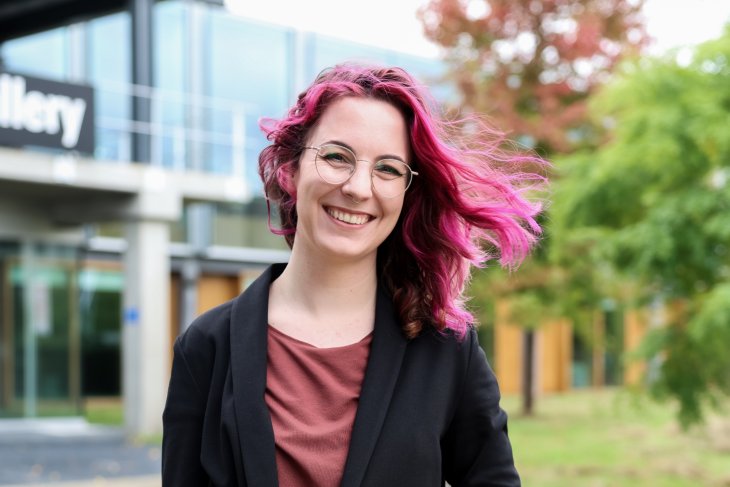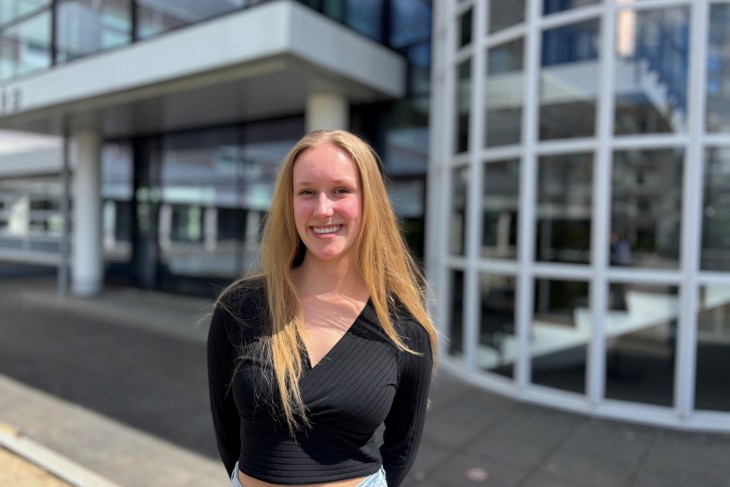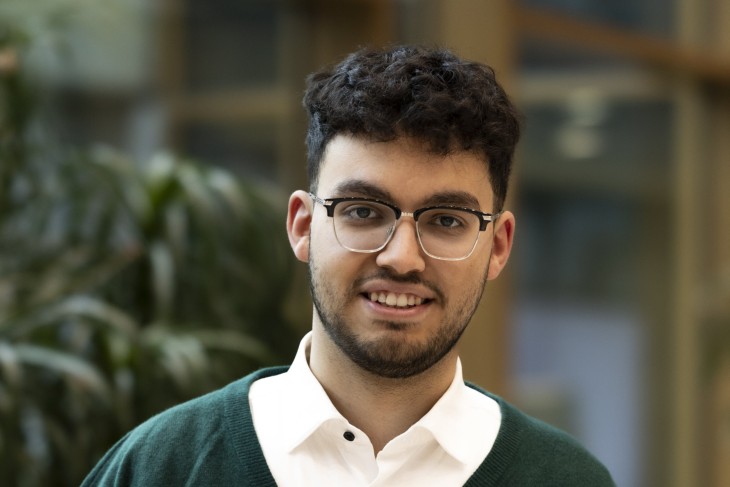“I’ve been into philosophy since I was about 14. I was the kid who constantly asked, “But why? How does that work? What does that mean?” I remember how in school, my religious studies teacher offered to teach us a class in philosophy and ethics, and I was one of the five students who jumped at the chance. It was like, finally a class where I could ask all the questions I had been dying to ask!
I completed my Bachelor’s in Philosophy at Bristol University, and when I decided to pursue a master’s, I knew I wanted to do a two-year English-taught programme abroad, with a focus on philosophy of science. I didn’t want to rush through in just one year but devote myself to philosophy at a deeper level. That pretty much narrowed my options in Europe as most of the master’s programmes in philosophy take one year.
I’m happy I ended up studying the Master's in Philosophy of Science, Technology & Society (PSTS) at the University of Twente because I’m learning about topical matters in society. For example, what's the impact of technology on scientific and cognitive possibilities? What’s science? How does technology affect the mind and body?
Variety
This programme is perfect for people like me who are curious about the world and don’t want to be boxed into one area. I love how it brings together science, technology, ethics, and the way the world works. There are students from all kinds of backgrounds — engineers, public servants, business people, mathematicians, you name it. Hearing their viewpoints during discussions and working together has enriched my experience.
There’s a lot of reading involved in this Philosophy Master's, so if you aren't into reading, it might be a challenge. And, yes, there’s a good amount of writing, too. Yet, you also get to work on practical assignments — everything I’m learning is grounded in real-world issues — and that’s the best part!
Practical assignments
For example, recently I wrote a joint essay with another student comparing how media and political texts in Germany and Hungary shape how people feel and what they believe about climate change. We examined scientific literature and more general media content, such as articles, policy documents, and social media posts. We looked at the language, the images, and the overall emotional tone of the communication.
We found that media in both countries often use highly emotional language, especially in social media. This kind of language can influence public opinion, making things seem way worse than they are. The focus tends to be on the negative—on everything that’s going wrong—while positive developments are often overlooked, and this keeps people’s emotions high, which can push certain political agendas. This assignment was a good example of how interconnected philosophy, science, and the way society interacts with technology and media are.
Tomorrow’s big questions
Creating a report for the module TechnoLab was one of the projects I found very exciting and challenging. My project group had to write a series of articles leading to a conclusion about a technology of our choice, which made it even tougher since we had to pick the topic ourselves. Eventually, we chose to explore "Sustainable AI” from two angles: how AI can be used for sustainability and what it means to make AI sustainable.
We discovered that while AI's role in sustainability is well-researched, the sustainability of AI itself, considering excessive energy use, sourcing of materials, and labour practices, remains largely underexplored. When we analysed discussions about AI, considering the three pillars of sustainability — environmental, social, and economic, which are closely linked to the Sustainable Development Goals — we found out they don’t make sustainability a central focus, leaving out social sustainability. This raises concerns about whether AI can truly be green or if it's a case of greenwashing.
Aspirations
I'm still exploring my options for the future, considering a PhD or returning to my previous career in higher education, but now with a deeper understanding and more insight. Whether in an educational role, civil service, or journalism, I want to continue working with people. The possibilities are wide open, and I'm confident that the skills I've developed will be invaluable to whatever career path I choose.”



